Is Saudi Arabia to blame for Islamic State?
- Published
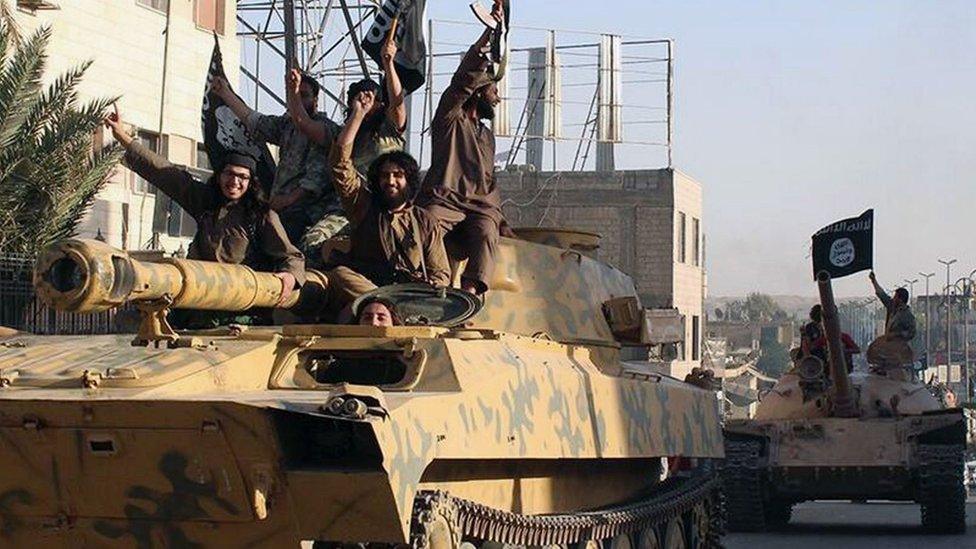
Is Saudi Arabia to blame for the rise of the so-called Islamic State (IS or ISIL)? It is commonly claimed that Wahhabism, the strict form of Islam originating in the Kingdom - and the Saudi state's aggressive promotion of it - has fuelled terrorism.
Saudi Arabia is also accused of funding IS, either directly or by failing to prevent private donors from sending money to the group.
But Saudi Arabia rejects both accusations, and has announced the formation of a new Islamic anti-terrorism coalition.
Five experts share their views.

Professor Bernard Haykel: IS theology directly linked to Wahhabism
Professor Bernard Haykel is director of the Institute for Transregional Study of the Contemporary Middle East, North Africa and Central Asia at Princeton University.
"The Islamic State's religious genealogy comes from 'Jihadi Salafism', a theological current that is very old in Islam that is quite literalist.
"[Followers are] extremely rigorous, and condemn other Muslims who don't share their theology. That gives them the hard edge when it comes to violence, because they can justify it theologically.
"Muhammad ibn Abd al-Wahhab is in that Salafist tradition. He was a religious reformer in Arabia who was able to create a religious movement that ended up creating a state.
"He saw that Muslims had deviated from the 'true' message of Islam; not praying properly or at all, or engaging in practices that he felt were violations of the faith.
"A lot of scholars of the period started writing treatises against his ideas. They felt that he was not sufficiently educated to teach.
"Eventually he was able to connect with the leader of the al-Saud family in 1744. That alliance had very strong and lasting effects.
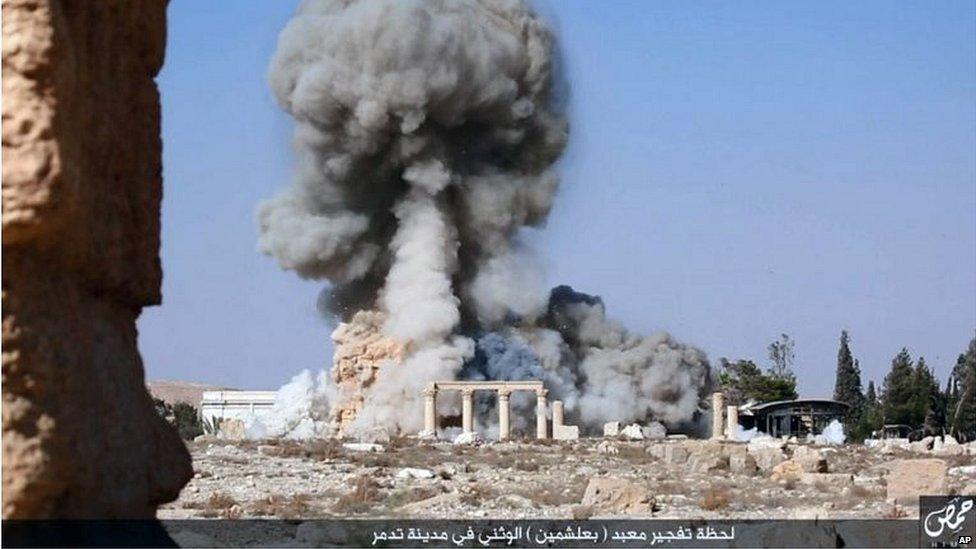
IS has destroyed numerous cultural artefacts and monuments of historic significance across Iraq and Syria.
"He believed there is a pure version of the faith, and that if one goes back to it, one is guaranteed salvation in the hereafter, but also in life God will give you all the things he promised.
"The first Saudi State, based on this Wahhabi faith, seemed to confirm his message because of the political and military success it had throughout the 18th Century and 19th Century where it conquered most of Arabia.
"Once a town was conquered he would appoint teachers to educate people in his version of the faith. He wrote a number of short books that were the basis for the teaching, books that are used by ISIS today.
"ISIS claims that the Saudi state has deviated from the true beliefs of Muhammad ibn Abd al-Wahhab, and that they are the true representatives of the Salafi or Wahhabi message."

Professor Madawi al-Rashid: Wahhabism led to Islamic awakening
Saudi-born Professor Madawi al-Rashid is visiting professor at the Middle East Centre at the London School of Economics.
"The Wahhabis were given full control of the religious, social and cultural life of the kingdom. As long as the Wahhabi preachers preached that Saudis should obey their rulers, the al-Saud family were happy.
"In the 1960s and 1970s the Arab world was full of revolutionary ideas. The Saudi government thought the Wahhabis were a good antidote, because they provide an alternative narrative about how to obey rulers and not interfere in politics.
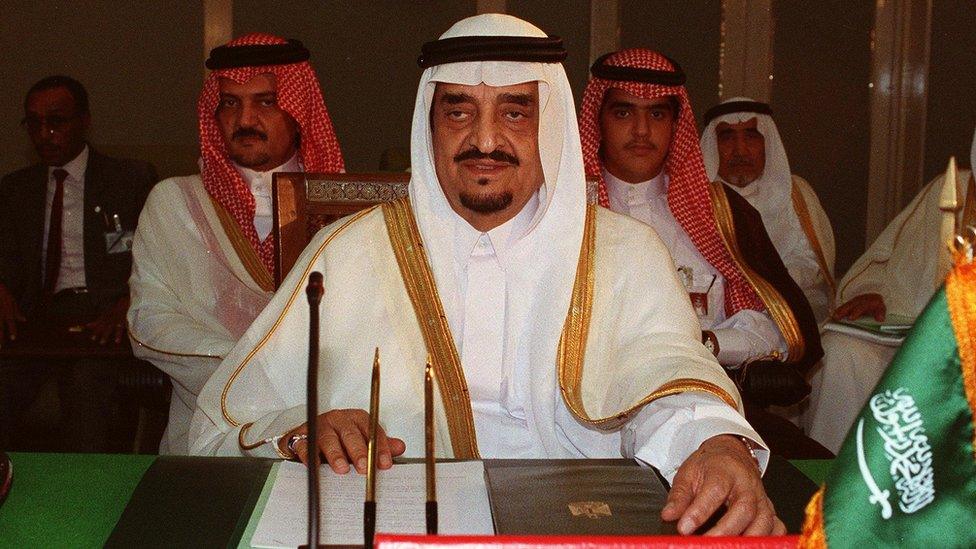
King Fahd, pictured in 1990, was keen to promote Wahhabism internationally
"In the 1980s, King Fahd established a printing press to publish Korans, sent for free to different parts of the world. They established Al-Madinah University to teach religion to students from around the world.
"Wahhabism is definitely an intolerant form of Islam. It is a local religious tradition that has gone global prematurely. We're seeing that it can be a revolutionary language that would inspire someone to commit atrocities in the name of Islam.
"When Afghanistan was invaded by the Soviet Union, Wahhabism was instrumentalised by the Saudi regime. It inspired young Muslim men to go to Afghanistan to fight a jihad against the Russian infidels.
"Wahhabism benefitted from the arrival of the Muslim brotherhood, who were exiled from places like Egypt, Syria and Iraq in the 1950s and 1960s. Saudi Arabia welcomed them.
"A lot of them became religious teachers so the fusion between this Wahhabi tradition, and the organisational skills of other Islamists, led to the emergence of a new trend in Saudi Arabia; the Islamist trend, what is referred to as the Islamic awakening."

Aimen Dean: Salafism has been greatly misunderstood
Saudi-born Aimen Dean left school to fight jihad in Bosnia in the 1990s and subsequently joined al-Qaeda. Disillusioned, he then started working undercover for the British government.
"The traditional Salafism practised mainly in Saudi Arabia and especially by the religious establishment might not have a favourable view of other strands of Islam, but is nonetheless very active in combating political violence because it believes in the sanctity of governance. It is better to put law and order and stability above the pursuit of justice and political ideals.
"The religious establishment in Saudi Arabia hasn't actually done anything in the form of discriminating violently against other forms of Islam.
"I always hear people saying 'We don't hear many Muslims condemn ISIS, standing up against terrorism'.
"How many Saudi security forces died in the fight against al-Qaeda and ISIS? How many ISIS and al-Qaeda prisoners are in the prisons of Saudi Arabia? This year alone 1,850 ISIS suspects have been arrested in Saudi Arabia.
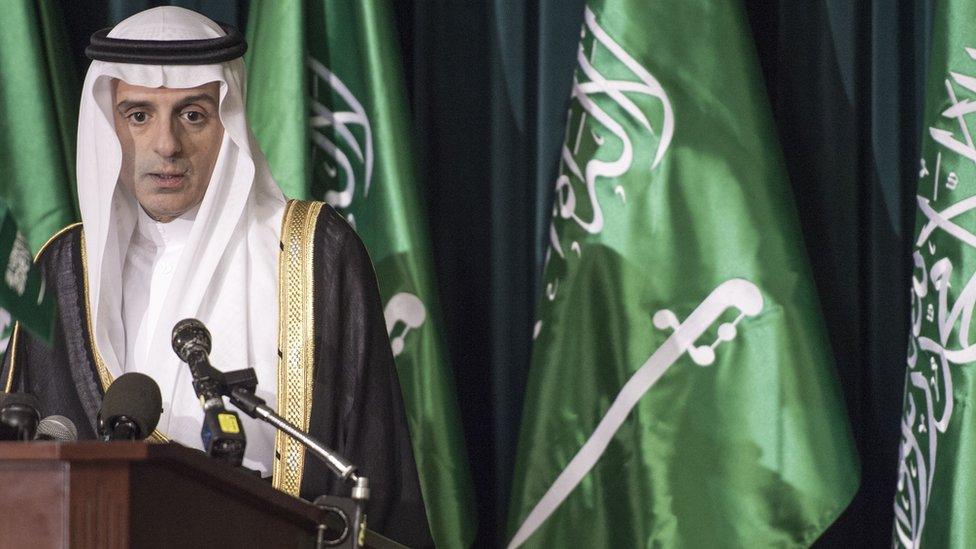
Saudi Foreign Minister Adel Al-Jubeir has offered military and financial assistance to several rebel groups in Syria
"Just the simple expression of sympathy [for ISIS] could land you in prison in Saudi Arabia.
"Saudi jails are filled with radical Islamists, yet across the Gulf Iranian jails are filled with liberals and human rights campaigners. Who is the moderate and who is the hard-liner?
"If you look at the numbers of Saudis who joined ISIS, there are up to 180 per million.
"In Tunisia - a vehemently secular nation with no religious education whatsoever for more than half a century - it's more than 212 per million."

Matthew Levitt: IS is financially self-sufficient
Matthew Levitt directs the counterterrorism program at The Washington Institute for Near East Policy.
"Contrary to conventional wisdom, ISIL derives a relatively small share of its funds from deep-pocket donors. And while terror financing within Saudi Arabia was once a major problem, Riyadh has begun to turn a corner - especially when it comes to financing ISIL.
"ISIL has been financially self-sufficient for years, including its early days as al-Qaeda in Iraq (AQI). A 2006 US assessment determined that AQI created a self-sustaining insurgency in Iraq, raising $70m-$200m (£47m-£134m) a year from illegal activities alone.
"Seized AQI documents indicate that 'outside donations amounted to only a tiny fraction - no more than 5% - of the group's operating budgets from 2005 until 2010'.
"Today, ISIL's primary sources of funding are extortion, oil smuggling, and other criminal activities. A small number of major donors were designated as terrorist financiers by the US Treasury Department, external, but these were exceptions.
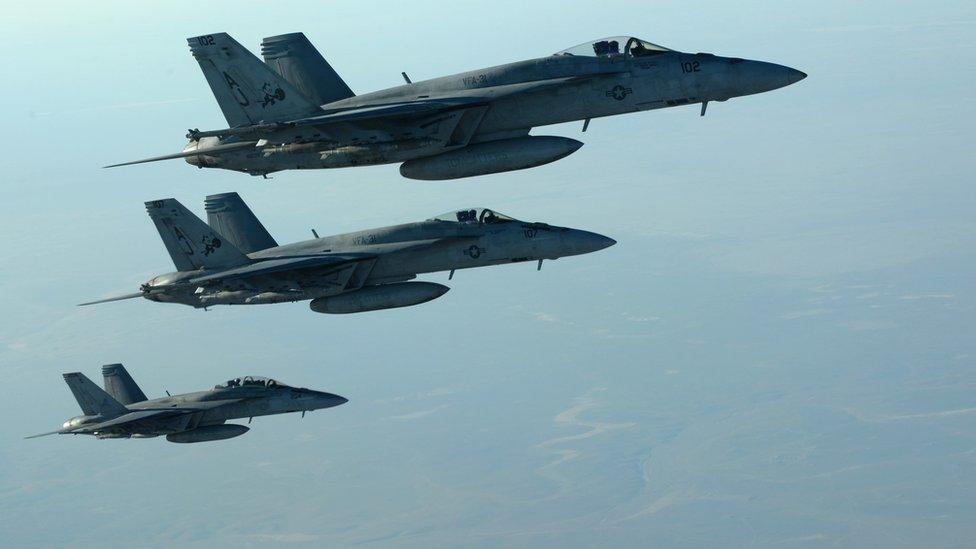
A US-led coalition has been targeting IS oil refineries in Syria and Iraq
"The Saudis have arrested several hundred ISIL suspects, reportedly including some ISIL financiers, but Riyadh provides no breakdown of the numbers.
Recent polling data, external suggests support for ISIL within Saudi Arabia hovers around 5%. And yet, those results suggest the Saudis have reason to worry: 5% of the Saudi population represents over a half a million potential donors.
"Authorities worry about ISIL sympathisers' ability to raise and move funds through hard-to-monitor cash transfers, a typical method among Saudi donors.
"Another concern is ISIL fundraising through social media and other communication technologies. Saudi authorities reported that ISIL fundraisers have solicited donors via Twitter and told them to establish contact via Skype. Donors were then asked to purchase international prepaid cards and provide the card numbers via Skype. These would be sold to earn cash.
"In March, Saudi Arabia co-chaired with the US and Italy the inaugural meeting of the Counter-ISIL Finance Group, external. This working group will get a significant boost this week at a UN Security Council summit of finance ministers, external focused on countering ISIL financing.
"Doing more to prevent ISIL donors moving money through banks and money exchangers is sure to be on the agenda."

Mohammed Yahya: Saudi Arabia poses a significant threat to IS
Mohammed Yahya is political consultant at the Saudi Arabian Embassy in London.
"Accusations that Saudi Arabia funds these groups and supports them ideologically are not only unfounded, they are an extreme disservice to the fight against terrorism, both in Saudi Arabia and internationally.
"Saudi Arabia has some of the strictest financial measures and controls to stop any funding to terrorist organisations.
"There is very strict monitoring on moving money overseas. Some individuals in the past have beaten the system, but the system that's in place is one of the most rigorous in the world.
"Many of these individuals [who may have funded IS] are in jail. Eight hundred people are incarcerated today that have direct links to ISIS.
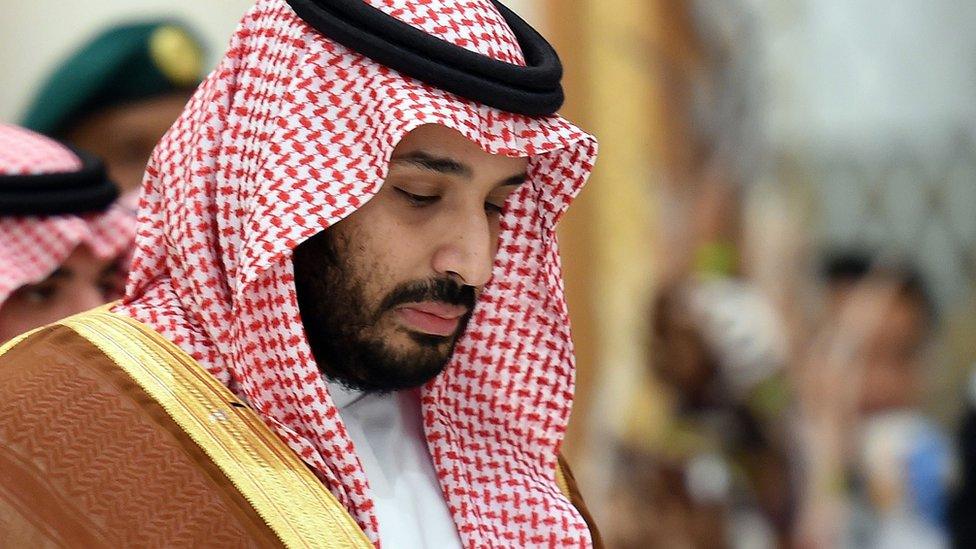
Saudi Defence Minister Mohammed bin Salman recently announced the formation of an Islamic military alliance to fight terrorism
"The Islamic State has conducted several attacks on Saudi Arabia. Saudi Arabia's counter-terrorism and intelligence programmes are the biggest threat they have both ideologically and on the ground.
"Saudi Arabia is very diverse. There are many different kinds of Muslims of all backgrounds and around 18 million Muslims visit annually for pilgrimage. Saudi Arabia has enacted laws that strictly prohibit religious incitement and calling for the death of innocent people.
"The fact that there is intolerant or controversial speech in Saudi Arabia is not a reflection of government policy.
"Much of Islam's teachings have been misconstrued.
"Just because one Islamic text by Muhammad ibn Abd al-Wahhab is used by ISIS does not mean that his teachings are everything that ISIS believes. They will use whatever fits their narrative from any source.
"To blame what is going on today in Syria and Iraq and elsewhere on the teachings of somebody that existed 270 years ago is just misleading."
The Inquiry: Is Saudi Arabia to blame for IS? was broadcast on the BBC World Service. Listen online or download the podcast.